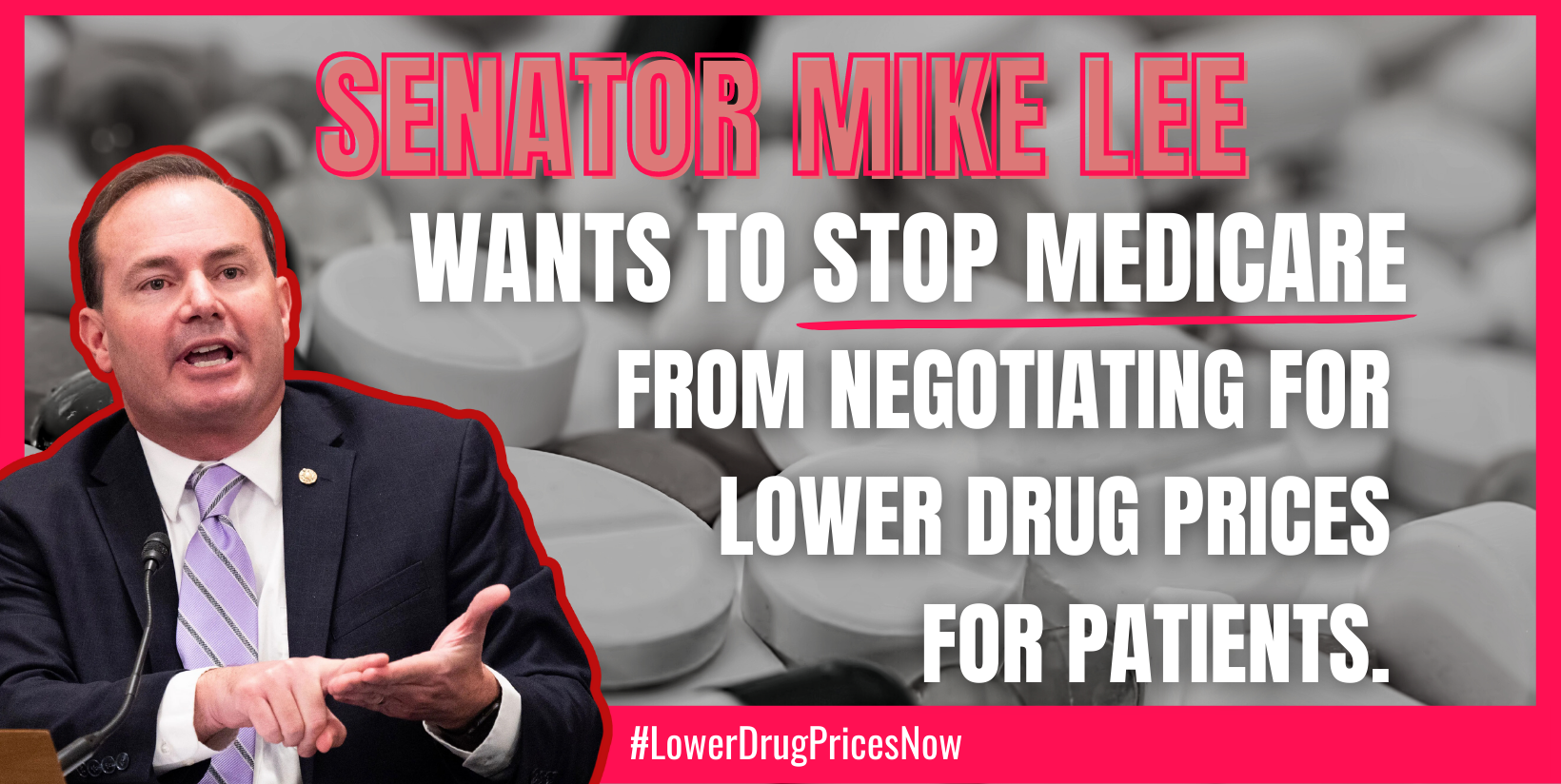
Just two months after President Biden signed a bill that would finally enable Medicare to negotiate over prescription drug prices and pass the savings on to seniors and people with disabilities, Senate Republicans are already insisting on repeal. Signed in late August, the Inflation Reduction Act makes historic improvements in Medicare that will lower prices on the most expensive drugs for Medicare enrollees and passed without support from a single Congressional Republican.
On October 7, 2022, Senator Mike Lee of Utah introduced a bill to roll back the reforms in the Inflation Reduction Act that lower prices on prescriptions and make medicines more affordable by capping annual costs for seniors. The repeal bill, the Protecting Drug Innovation Act, is also sponsored by Republican Senators James Lankford (OK), Senator Cynthia Lummis (WY) and Senator Marco Rubio (FL).
The Republican repeal bill would enable drug corporations to go back to raising prices faster than inflation on even basic medicines like insulin and to continue price-gouging while millions of Americans struggle to afford treatment. Over a quarter of adults in our country ration their prescriptions, skip doses, get into debt, or go without the medicine they need because they can’t afford their prescriptions.
Seniors and people with disabilities on Medicare are especially vulnerable both because they tend to take more medicines and because Medicare, the healthcare insurance for seniors, has for decades been prohibited from negotiating lower prices–unlike Medicaid or the Department of Veterans Affairs.
Large majorities of the public support Medicare negotiations—including 95% of Democrats, 82% of independents, and 71% of Republicans—but there has been little bipartisan action to fix the problem over the years. Finally this year, Democrats, who currently hold majorities in the House and Senate, passed legislation to make prescriptions affordable after a decade of promises.
Medicare negotiations will limit drug corporations’ monopoly power to set prices and raise them any time they want for Medicare enrollees. The nation’s largest drug corporations like Bristol-Myers, Eli Lilly, and Merck (among others) increased the prices of half the drugs covered by Medicare faster than rate of inflation in 2020.
The Inflation Reduction Act makes historic improvements to Medicare by lowering drug prices through Medicare negotiations, capping out-of-pocket costs on prescriptions for the first time, and penalizing drug corporations that raise their rates faster than inflation. Millions of seniors and people with disabilities will, for the first time, pay no more than $35 a month for their insulin, get all vaccines at no cost to them, and see lower Medicare premiums. Read more about who benefits in your state under the IRA.
In response to the repeal legislation, HCAN worked with those who would be impacted by repeal of the new law to urge their Republican Senators to reconsider, publishing an op-ed and blogs from a constituent in Wyoming. Here’s what impacted people had to say:
“Utah seniors and their families are depending on all our elected leaders to put our needs ahead of political partisanship and corporate greed.”
Marion Lennber, Utah
“The drug corporations have thousands of lobbyists and unlimited resources to fight the implementation of Medicare negotiations – they don’t need Sen. Lummis to protect their enormous profit margins by blocking this law. Wyoming seniors and their families deserve better representation than that from our senator.”
Vicki Swenson, Wyoming
“Diabetes doesn’t discriminate. Anyone may need affordable medicines to get better themselves or treat a family member. Instead of keeping Pharma in control of our drug prices, our elected leaders should be working to make sure that no matter where someone lives, how much money they have or what political candidate they vote for, they can access affordable life-saving medicines when they need them.”
Denise Marrero, Florida

